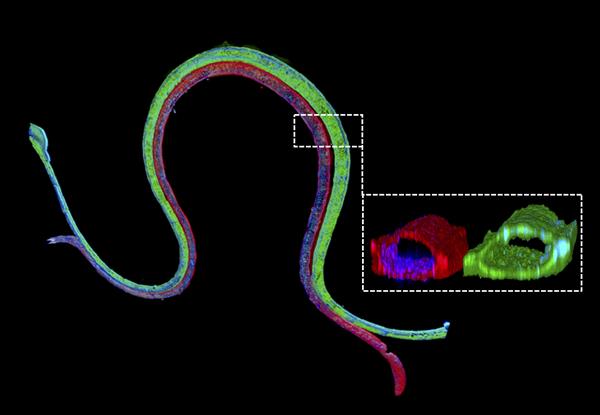Harvard’s Wyss Institute and their work with printed proximal bioprinted tubules help to reintroduce good molecules into the bloodstream. Aside from simulating the kidney’s functions, the research may also allow for the testing of treatments and diseases.
The kidneys carry out a very crucial function, i.e. that of maintaining the relative hygiene of the blood. They keep out waste, salt and excess fluid build-up thanks to intricate networks of filtration units. They also reintroduce beneficial material into circulate. A large part of this is due to the proximal tubules which reintroduce the molecules after they’re filtered by the glomeruli, which remove the excess water and waste. The bioprinted tubules are now allowing the researchers to simulate the effects of drugs, chemicals and diseases on the kidneys. The trials have been quite promising.
“We construct these living renal devices in a few days and they can remain stable and functional for months,” said Neil Lin, Ph.D., who is a Roche Fellow and Postdoctoral Fellow on Lewis’ team. “Importantly, these 3D vascularized proximal tubules exhibit the desired epithelial and endothelial cell morphologies and luminal architectures, as well as the expression and correct localization of key structural and transport proteins, and factors that allow the tubular and vascular compartments to communicate with each other.”
Simulating A Printed Organ
The findings are particularly useful for the pharmaceutical industry, as it can already simulate and test various chemicals. The team has monitored the effects of hyperglycemia by artificially inducing high-glucose effects on the bioprinted tubules. This helps them monitor the effects of diseases like diabetes by circulating glucose at 4 times higher than normal concentrations. They even passed drugs through to inhibit the effects of rampant glucose among the cells, noticing positive effects.
“We found that high levels of glucose transported to endothelial cells in the vascular compartment caused cell damage,” said Kimberly Homan, Ph.D., Research Associate at the Wyss Institute and SEAS. “By circulating a drug through the tubule that specifically inhibits a major glucose transporter in proximal tubule epithelial cells, we prevented those harmful changes from happening to the endothelial cells in the adjacent vessels.”
The bioprinted tubules could be instrumental in screening drugs and conducting trials far faster. It is, sadly, not a complete solution yet. While the simulations can only test a particular organ and not the whole body, it’s a miraculous discovery nonetheless. The tissues also have the ability to augment dialysis in patients, according to the researchers. Perhaps they could also illuminate the process of filtration outside of biology as well. The research has a lot of potential and could aid treatment for millions of patients around the world.
Featured image courtesy of Wyss Institute.



